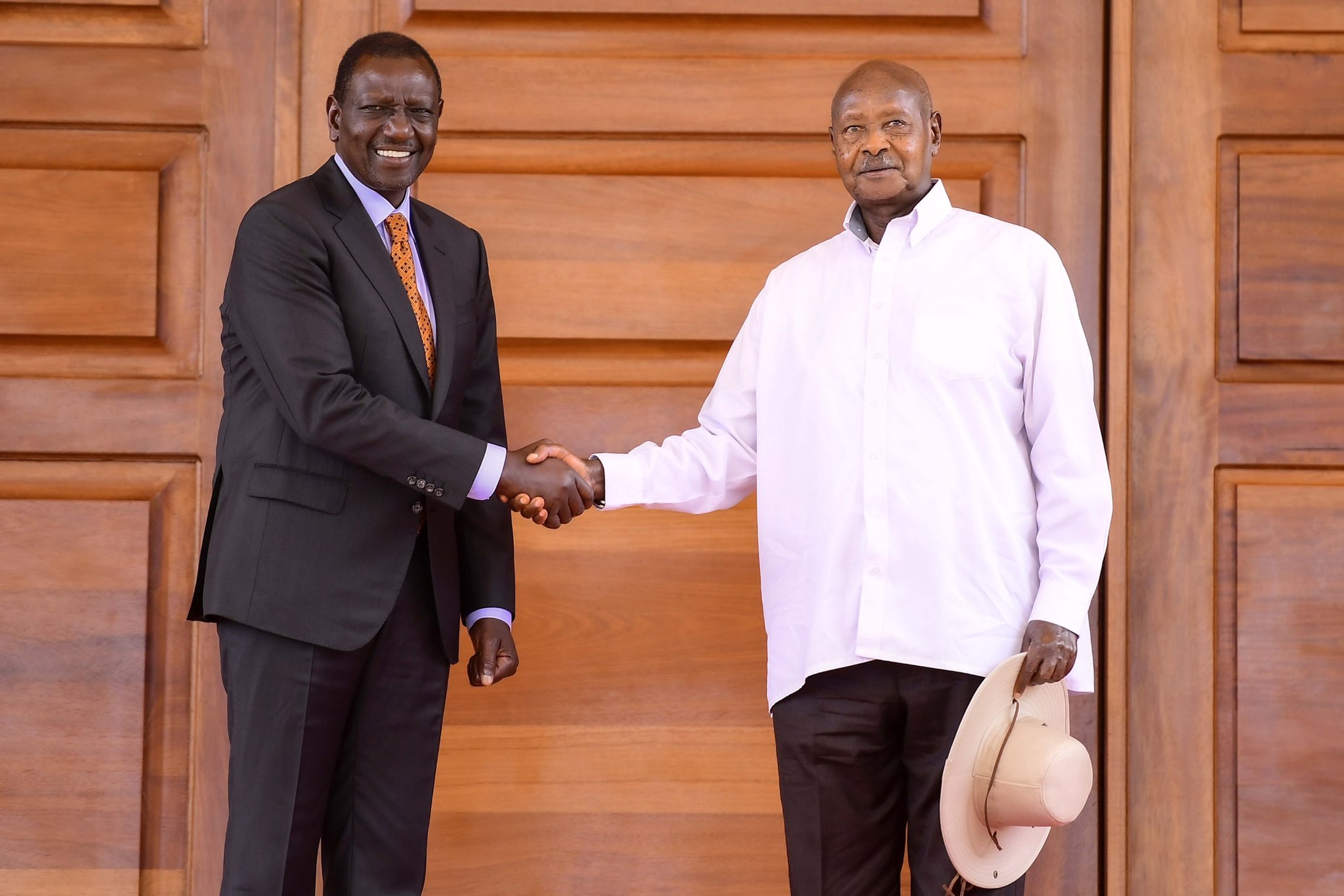
President Yoweri Museveni’s state visit to Kenya aimed to recalibrate ties with one of Uganda’s major regional partners, unlocking the potential of trade, investment, and major infrastructure projects that have been scuttled by recent trade disputes. Beyond trade deals, the visit highlighted a significant global political shift from a unipolar to a multipolar system, with East Africa positioning itself as a key geopolitical and geostrategic bloc.
In the post-Cold War era, Africa is no longer seen as a continent in dystopian ruin but as a crucial player in the fifth industrial revolution, thanks to its vast mineral wealth. President William Ruto of Kenya has been vocal about pursuing a non-aligned agenda, promoting intercontinental trade by weaning Africa off the dollar. This sentiment echoes the earlier push by the late Libyan leader, Muammar Gaddafi. However, Kenya’s heavy debt burden necessitates a pragmatic approach, balancing Ruto’s moral crusade with realpolitik.
Political scientist Mutahi Ngunyi asserts that Ruto’s alignment with American foreign policy, particularly in the digital economy, is a strategic move to refinance Kenya’s debt through the IMF and World Bank. Nairobi's ambition to become the ICT hub of Africa is bolstered by the support of the current US envoy, Meg Whitman, a former CEO of eBay and a strong proponent of Ruto’s policies.
Jimmy Wanjigi, leader of Kenya's Safina Party, criticizes Ruto for perpetuating Western interests, arguing that Africa must preserve its cultural identity against the influence of former colonizers. Wanjigi emphasizes the need for African unity and self-reliance, criticizing Ruto’s approach to debt and taxation, which he sees as a continuation of the previous regime's policies.
Ruto, who enjoys favorable relations with Washington, is scheduled to visit the United States for a state dinner hosted by President Joe Biden. This visit places him in an exclusive club of world leaders invited for state visits during Biden’s tenure, highlighting his growing influence on the global stage.
Ken Opala, a senior journalist and founder of the African Investigative News Service, suggests that Museveni’s trip to Kenya may be an attempt to leverage Ruto’s influence in lobbying for Uganda, especially concerning the controversial Anti-Homosexuality Act, which has faced significant criticism from the West. However, Opala doubts Ruto would take on this lobbying role directly, given the Kenyan administration's shared views with Ugandan MPs on the matter, though they approach it with more tact.
The timing of Museveni’s visit follows his attendance at the World Bank’s International Development Association summit for African heads of state in Nairobi. During the summit, Museveni criticized the IMF and World Bank for profiteering from aid without funding essential infrastructure projects like railways, which are crucial for reducing transport costs and boosting economic growth.
The deep ethnic and historical ties between Uganda and Kenya, spanning from the Sebei hills to the Rift Valley, have often been a focal point in Museveni’s speeches on African integration. He frequently emphasizes the shared heritage and languages between the peoples of the two nations, advocating for economic and political unity for strategic security and prosperity.
Mutahi Ngunyi describes Museveni as a spokesperson for the African renaissance, commending his candidness and alignment with truth as he ages. He notes that Ruto, once a student of former Kenyan president Daniel arap Moi, appears to be following in Museveni’s footsteps in advocating for a new financial structure.
In the early years of his presidency, Museveni embraced neo-liberal reforms from the Bretton Woods Institutions, including structural adjustment programs to revive Uganda’s post-conflict economy. His government privatized several parastatals, including Uganda Commercial Bank, under the World Bank’s advice. This historical context underscores the significance of Museveni’s current efforts to navigate the complex interplay of regional alliances and global political dynamics during his visit to Kenya.











